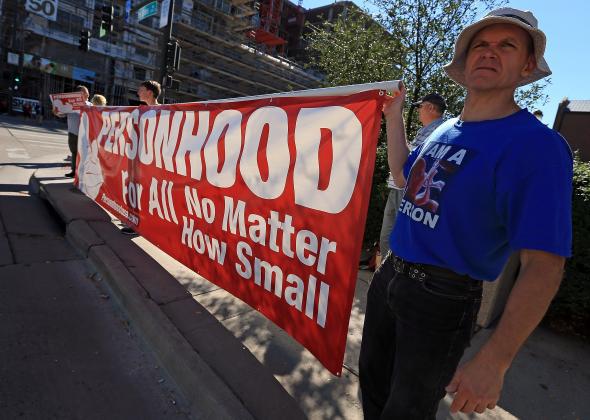For the third time, Colorado voters have been asked to vote for a “personhood” law, and for the third time, a resounding majority of voters declined. Proponents of Amendment 67, which defined a fertilized egg as a legal “person” from fertilization on, thought they could woo voters this time by narrowly wording the amendment so it would seems to only define fertilized eggs as persons for the purposes of prosecuting people who commit crimes against pregnant women. Supporters, such as Keith Mason of Personhood USA—which has backed more blatantly worded attempts to define fertilized eggs as persons in the past—even had a habit of taking umbrage at the idea that this law was an attack on women’s rights.
Considering that the law was expressly intended to make it illegal to kill a fertilized egg, it’s hard to imagine that it would have not been used to try to define abortion, legally, as murder. But the concerns extended well beyond that. Since the law would have made it a matter of homicide to cause a miscarriage, it could have been used to prosecute women who had miscarriages by accusing them of somehow failing to do more to care for their fertilized egg babies. “If you get a prosecutor who wants to make a statement about unborn life,” Aya Gruber, a law professor at the University of Colorado, told Politico, “Absolutely, you could have prosecutions for miscarriages. This law allows it. It allows it!”
Luckily, Colorado voters shot down personhood for a third time. Republican Senate candidate Cory Gardner, who supported previous efforts to define fertilized eggs as people, declined to do so this time around. Perhaps that’s what helped him eke out a win in Tuesday night’s heated race against incumbent Mark Udall. Now we’ll have to wait to see if anti-choice activists think fourth time’s the charm.
